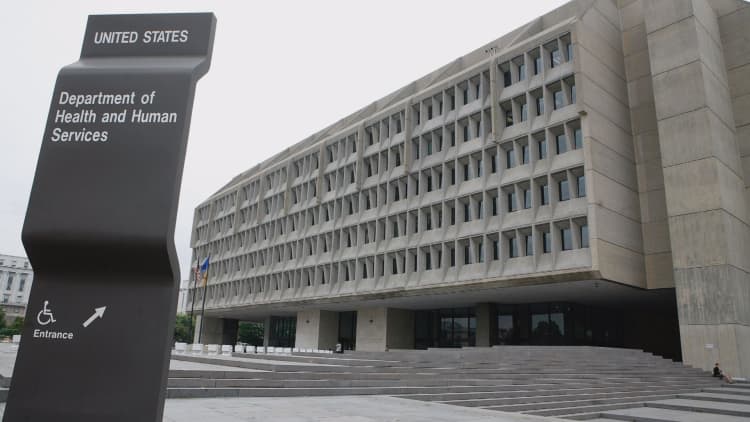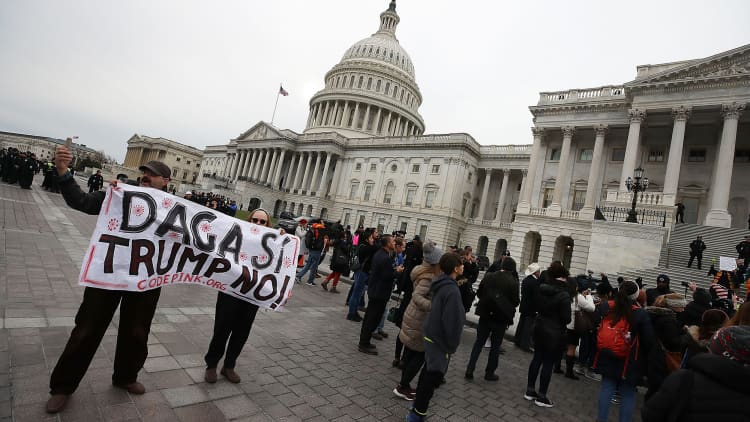Three Obamacare taxes have been put on ice — for now — by the deal that ended the shutdown of the federal government.
The stopgap spending deal reached by Congress on Monday suspended imposition of the three taxes: the so-called Cadillac tax on high-value health plans, a 2.3 percent levy on medical devices and the health insurance tax.
The health insurance tax on insurers, which was projected to collect more than $14 billion in revenue this year, was suspended for one year. It now is set to take effect in 2019.
The tax had been blamed for adding 2.7 percent on average to the premiums charged by health plans this year.
Elena Tompkins, executive director of a group opposing the tax, Stop The HIT, said the suspension of the levy is "an important step that will help provide much-needed relief and certainty to 29 million small businesses and their employees next year."
"However, small businesses are bearing the costly burden of the HIT and need immediate, urgent relief," Tompkins said. "We urge Congress to continue to advance solutions that will provide relief from the HIT in 2018 and protect millions of small businesses from this misguided tax."
The medical device tax was delayed for two years, until January 2020, after having previously been extended. The Congressional Budget Office had estimated that a total of $3.27 billion would have been collected from device makers this year and in 2019 if the tax were in effect.

Mark Leahey, president and CEO of Medical Device Manufacturers Association, said the group "applauds Congress for passing legislation that funds the government ... while protecting medical technology innovation from the destructive impact of the medical device tax by suspending it for two additional years."
"We remain committed to working with the broad, bipartisan coalition that supports a full and permanent repeal of the device tax this year," Leahey said.
Also delayed for two additional years was the "Cadillac tax," which would impose a 40 percent surcharge on job-based health insurance coverage with premiums of more than $10,200 per year for individuals and $27,500 for families.
The tax will be delayed until 2022. There had already been a prior suspension of the tax, which originally was supposed to take effect this year.
James Klein, president of the American Benefits Council, applauded the delay of the tax but said his group "will continue efforts to fully repeal this onerous tax."
The tax is much loathed by employers, who will not be able to deduct the surcharge as a business expense.
Although the tax is unpopular among Republicans and a number of Democrats, it was included in the Affordable Care Act as a tool to control health-care spending. Health economists have blamed generous health plans for some of that increase in spending because people are less apt to worry about the cost, or the necessity for medical tests and procedures if their insurance is picking up most or all of price of them.
The Cadillac tax also is designed to generate billions of dollars of revenue for the federal government, which would then use that money to fund Affordable Care Act programs including subsidies for the purchase of Obamacare plans by low- and middle-income customers, and the expansion of Medicaid benefits.
In addition to suspending the three Obamacare taxes as part of its deal to end the shutdown, Congress authorized, for six more years, funding of the Children's Health Insurance Program.
CHIP, which is jointly run by the federal government and individual states, provides health coverage to about 9 million children. Although the program is broadly popular across party lines, Congress failed to reauthorize spending on CHIP in September, and several states were on the verge of running out of funds for the program before the shutdown deal was reached.
WATCH: This is what happens when the U.S. government shuts down



